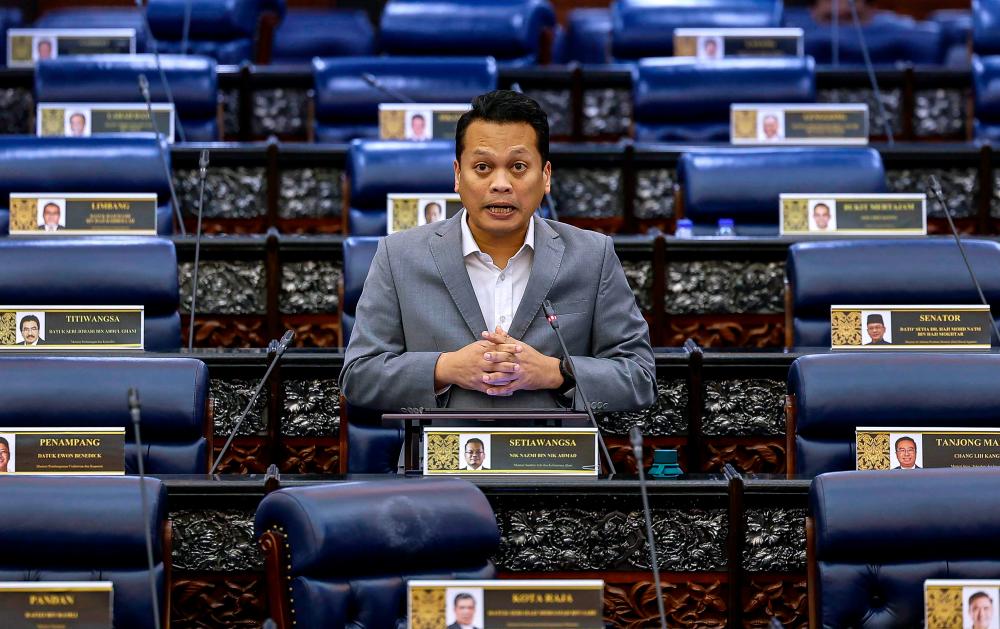KUALA LUMPUR: The Department of Director General of Lands and Mines (JKPTG) is currently identifying vacant or abandoned Federal land to be optimised for rental or leasing purposes in line with the Federal Land Management New Direction 2021-2030 policy.
Natural Resources and Environmental Sustainability Minister Nik Nazmi Nik Ahmad said that under the policy, the holding period for Federal land that has not been developed by the relevant ministries or user departments is set at five years, with an additional two years based on discretion and solid justification, which must be submitted to the Federal Land Commissioner.
“We believe this period is reasonable for the ministries or user departments to plan development on the land under their control.
“After this period, the Federal Land Commissioner has the right to manage the land after first consulting with the ministries or departments involved, whether for repurposing, adjustments, rental, or leasing,” he said while winding up the debate on the Auditor-General’s Report (LKAN) for his ministry in the Dewan Rakyat yesterday.
Nik Nazmi also said that for land involved in phased development projects that required a longer period to complete, development budget confirmation could be provided to the Federal Land Commissioner for consideration.
He added that through these measures, Federal land can be optimised, generating revenue for the Federal Government and preventing encroachment by irresponsible parties.
Meanwhile, Deputy Minister of Education Wong Kah Woh said that as of yesterday (Oct 14), the number of development projects under the Ministry of Education (KPM) categorised as “sick projects” had reduced to 15 projects compared to 72 projects reported in the LKAN until Dec 31, 2023.
“The Ministry of Education has reviewed the current status based on the intervention measures taken. As of yesterday, out of 72 sick projects, only 15 projects remain, with three delayed and seven retendered,” he said.
Wong highlighted that the main factors contributing to the “sick projects” included poor project management and planning by contractors, weaknesses in appointed consultants, land readiness issues, increased costs, the need for utility coordination, new additional requirements, and difficulties in machinery access to sites in some cases.
Minister of Health Datuk Seri Dr Dzulkefly Ahmad added that all Ministry of Health (KKM) projects that were delayed or categorised as “sick” and highlighted in the LKAN report were continuously monitored by the ministry.
“The Ministry of Health also discusses the status and issues related to the implementation of these projects through the Ministry Development Action Committee Meeting (JTPK) held monthly, as well as the Ministry Development Action Council, which is chaired by the Minister of Health, held quarterly,” he said.
The Dewan Rakyat sitting resumes today.









